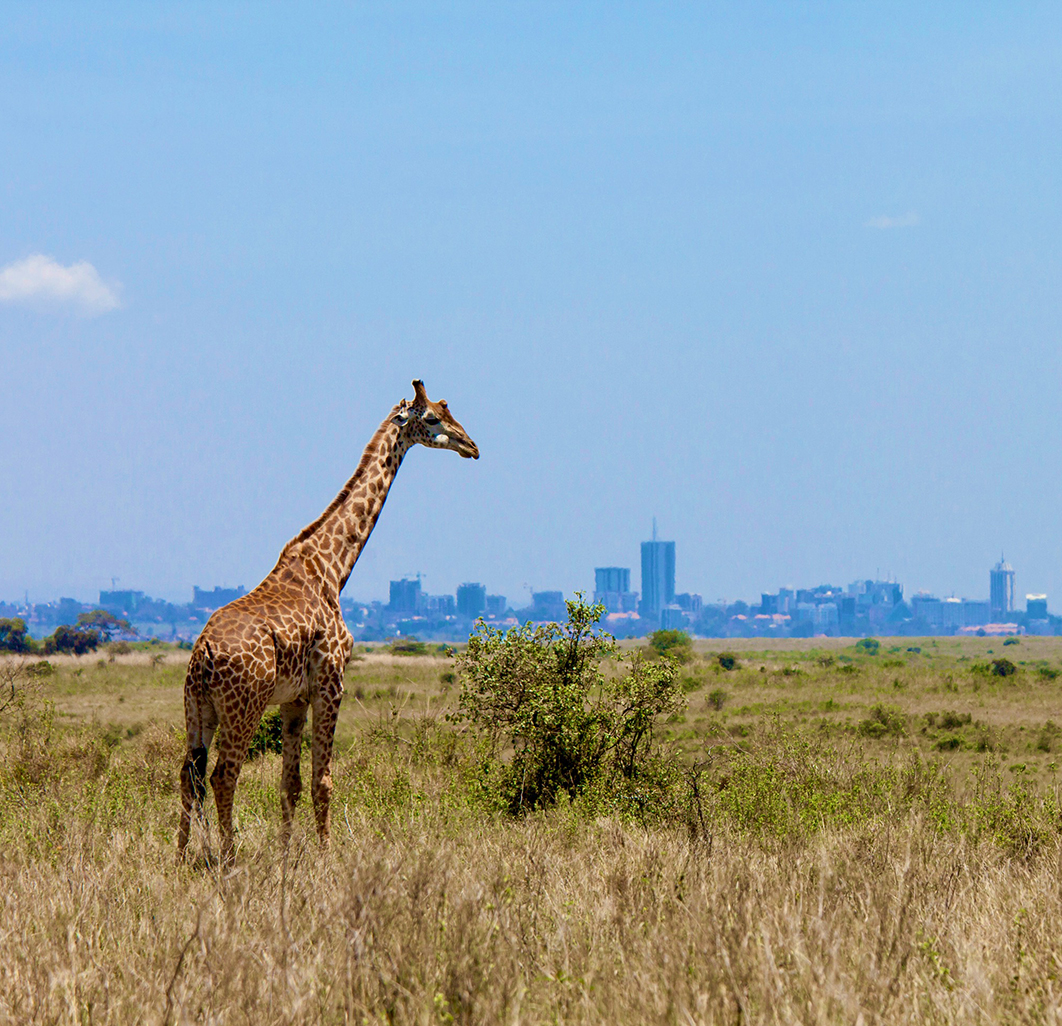Rangeland
Giraffe grazing in front of the skyline of Nairobi, Kenya. Photo: Wollwerth, depositphotos

Common-pool resources took centre stage at the XIX Biennial IASC Conference, “The Commons We Want: Between Historical Legacies and Future Collective Actions”, held in Nairobi, Kenya, in June 2023. The global conference explored future possibilities for research and practice, taking into account the past in the form of legal and structural legacies that influence possible development pathways. CDE co-organized the event and its scholars presented their research and engaged in the debate with the international commons community.
The past two years of drought in East Africa have been devastating. Maasai and other pastoralists have lost hundreds of cattle, a loss that goes beyond just income and livelihoods, but also strikes at their pride, their honour, and the fabric of their communities. Facing growing pressure from climate change and restrictions on their movement, representatives of Indigenous communities are therefore urging us to broaden our perspectives – scientific ones included – to explore solutions that consider both their land rights and the knowledge they possess to navigate different land uses and power imbalances surrounding land claims.
The International Association of the Study of the Commons (IASC) brings together academics and activists to study the governance of the commons and to advocate for these institutions, which are often rooted in tradition. This field of study, pioneered by IASC founding member and Nobel laureate Elinor Ostrom, is crucial for addressing today’s polycrisis. Across Africa, 70–85 % of land is held under customary law, directly sustaining nearly 1 billion people. Commons – in their multiple forms – offer an alternative to both state-centric and market-driven approaches to address existential and violent conflicts over resources. Against this backdrop, the IASC conference’s return to Africa after 20 years was especially significant.
The conference was jointly organized by the University of Bern’s CDE and Institute of Anthropology, the University of Nairobi, and our Kenyan partner organization, CETRAD. The event offered a broad range of conversations and debates around common-pool resources, with land being the most prominent – but not the only – resource in question. The conference emphasized the critical importance of legally securing Indigenous people’s rights to access and use their ancestral lands. This includes recognizing collective, not just individual land rights, which at present – encouragingly – is the case in 35 countries in Africa. The question of restitution of ancestral lands to communities is also gaining traction, with seven court cases underway. Kenya is one of the countries to have promised restitution.
The conference highlighted the challenges faced by Indigenous communities against a backdrop of increasing and powerful claims from industries such as logging, mining, nature conservation, and tourism. Climate change is likely to exacerbate these pressures. And while Indigenous communities will need support to protect their commons, the conference also showcased the resilience of many communities. These communities are well poised to express their needs and the type of collaboration they envisage to enhance their capacities to use, protect, and manage their lands. And, importantly, to pursue their own development priorities.
Giraffe grazing in front of the skyline of Nairobi, Kenya. Photo: Wollwerth, depositphotos